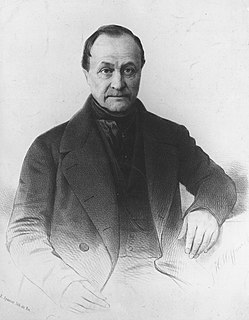The history of science and technology (HST) is a field of history that examines the understanding of the natural world (science) and the ability to manipulate it (technology) at different points in time. This academic discipline also studies the cultural, economic, and political impacts of and contexts for scientific practices.
Musicology is the scholarly analysis and research-based study of music. Musicology departments traditionally belong to the humanities, although some music research is scientific in focus. Some geographers and anthropologists have an interest in musicology so the social sciences also have an academic interest. A scholar who participates in musical research is a musicologist.
Social epistemology refers to a broad set of approaches that can be taken in epistemology that construes human knowledge as a collective achievement. Another way of characterizing social epistemology is as the evaluation of the social dimensions of knowledge or information.

The following outline is provided as an overview of and topical guide to the discipline of sociology:

An academic discipline or field of study is a branch of knowledge, taught and researched as part of higher education. A scholar's discipline is commonly defined by the university faculties and learned societies to which they belong and the academic journals in which they publish research.
Social theories are analytical frameworks, or paradigms, that are used to study and interpret social phenomena. A tool used by social scientists, social theories relate to historical debates over the validity and reliability of different methodologies, the primacy of either structure or agency, as well as the relationship between contingency and necessity. Social theory in an informal nature, or authorship based outside of academic social and political science, may be referred to as "social criticism" or "social commentary", or "cultural criticism" and may be associated both with formal cultural and literary scholarship, as well as other non-academic or journalistic forms of writing.

Environmental studies is a multidisciplinary academic field which systematically studies human interaction with the environment. Environmental studies connects principles from the physical sciences, commerce/economics, the humanities, and social sciences to address complex contemporary environmental issues. It is a broad field of study that includes the natural environment, the built environment, and the relationship between them. The field encompasses study in basic principles of ecology and environmental science, as well as associated subjects such as ethics, geography, anthropology, policy, education, politics, urban planning, law, economics, philosophy, sociology and social justice, planning, pollution control and natural resource management. There are many Environmental Studies degree programs, including a Master's degree and a Bachelor's degree. Environmental Studies degree programs provide a wide range of skills and analytical tools needed to face the environmental issues of our world head on. Students in Environmental Studies gain the intellectual and methodological tools to understand and address the crucial environmental issues of our time and the impact of individuals, society, and the planet. Environmental education's main goal is to instill in all members of society a pro-environmental thinking and attitude. This will help to create environmental ethics and raise people's awareness of the importance of environmental protection and biodiversity.

Sociology as a scholarly discipline emerged, primarily out of Enlightenment thought, as a positivist science of society shortly after the French Revolution. Its genesis owed to various key movements in the philosophy of science and the philosophy of knowledge, arising in reaction to such issues as modernity, capitalism, urbanization, rationalization, secularization, colonization and imperialism.
The philosophy of social science is the study of the logic, methods, and foundations of social sciences. Philosophers of social science are concerned with the differences and similarities between the social and the natural sciences, causal relationships between social phenomena, the possible existence of social laws, and the ontological significance of structure and agency.

Positivism is an empiricist philosophical theory that holds that all genuine knowledge is either true by definition or positive—meaning a posteriori facts derived by reason and logic from sensory experience. Other ways of knowing, such as theology, metaphysics, intuition, or introspection, are rejected or considered meaningless.
Karl Olivecrona was a Swedish lawyer and legal philosopher. He studied law at Uppsala from 1915 to 1920 and was a pupil of Axel Hägerström, the spiritual father of Scandinavian legal realism. One of the internationally best-known Swedish legal theorists, Olivecrona was a professor of procedural law and legal philosophy at Lund University. His writings emphasise the psychological significance of legal ideas. His most striking work on legal theory, the first edition of his book Law as Fact, stressed the importance of a monopoly of force as the fundamental basis of law. Olivecrona's politics during World War II showed a related stress on a need for overwhelming coercive power to guarantee order in international relations. He became convinced that Europe required an unchallengeable controlling force to ensure its peace and unity, and that Germany alone could provide this. His pamphlet England eller Tyskland, published in the darkest days of the war, argued that England had lost its claim to exert leadership in Europe and that the future required an acceptance of German hegemony.
Sven Ove Hansson is a Swedish philosopher. He is a professor of philosophy and chair of the Department of Philosophy and History of Technology at the Royal Institute of Technology (KTH) in Stockholm, Sweden. He is an author and scientific skeptic, with a special interest in environmental risk assessment, as well as in decision theory and belief revision.

Jan Hertrich-Woleński is a Polish philosopher specializing in the history of the Lwów–Warsaw school of logic and in analytic philosophy.

Sociology is a social science that focuses on society, human social behavior, patterns of social relationships, social interaction, and aspects of culture associated with everyday life. It uses various methods of empirical investigation and critical analysis to develop a body of knowledge about social order and social change. While some sociologists conduct research that may be applied directly to social policy and welfare, others focus primarily on refining the theoretical understanding of social processes and phenomenological method. Subject matter can range from micro-level analyses of society to macro-level analyses.
Francisco Gil Villegas Montiel is a Mexican political scientist and professor, most strongly associated with the National Autonomous University of Mexico (UNAM) and El Colegio de México.

Charles Leonard Hamblin was an Australian philosopher, logician, and computer pioneer, as well as a professor of philosophy at the New South Wales University of Technology in Sydney.

Roger Joseph Boscovich was a physicist, astronomer, mathematician, philosopher, diplomat, poet, theologian, Jesuit priest, and a polymath from the Republic of Ragusa. He studied and lived in Italy and France where he also published many of his works.
The Epiphany Philosophers was a group of philosophers, scientists and religious who met regularly and published between 1950 and 2010. The focus of their endeavours was on the relationship between science and religion.

María José Frápolli Sanz is a Spanish philosopher. As of 2022, she is professor of Logic and Philosophy of Science at the University of Granada. Her work is focused on the philosophy of language and the philosophy of logic.







